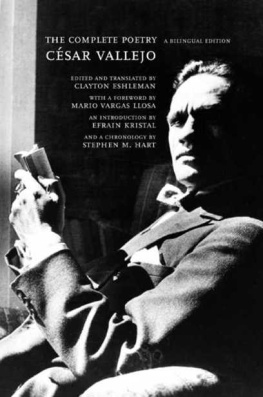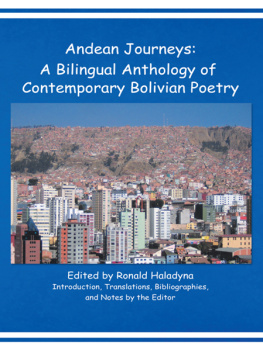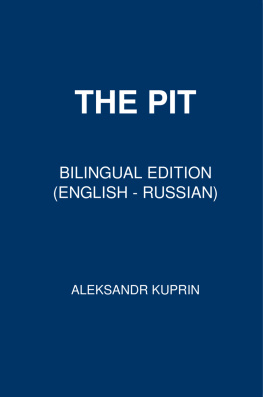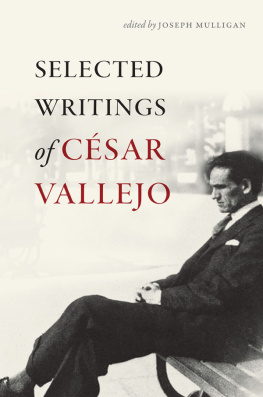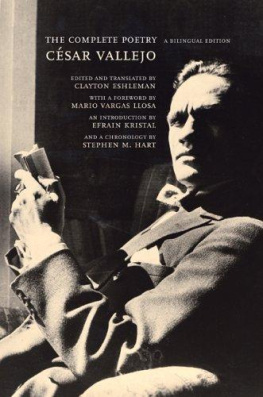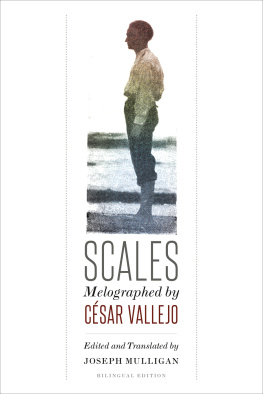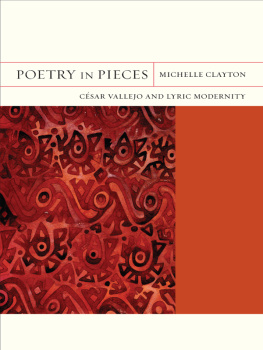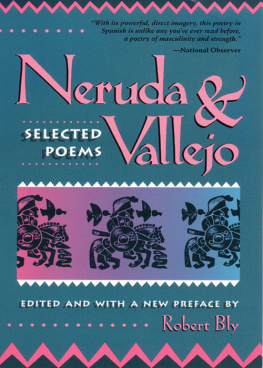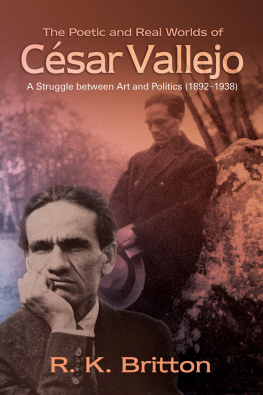Cesar Vallejo - The Complete Poetry: A Bilingual Edition
Here you can read online Cesar Vallejo - The Complete Poetry: A Bilingual Edition full text of the book (entire story) in english for free. Download pdf and epub, get meaning, cover and reviews about this ebook. year: 2007, publisher: University of California Press, genre: Art / Prose. Description of the work, (preface) as well as reviews are available. Best literature library LitArk.com created for fans of good reading and offers a wide selection of genres:
Romance novel
Science fiction
Adventure
Detective
Science
History
Home and family
Prose
Art
Politics
Computer
Non-fiction
Religion
Business
Children
Humor
Choose a favorite category and find really read worthwhile books. Enjoy immersion in the world of imagination, feel the emotions of the characters or learn something new for yourself, make an fascinating discovery.
- Book:The Complete Poetry: A Bilingual Edition
- Author:
- Publisher:University of California Press
- Genre:
- Year:2007
- Rating:3 / 5
- Favourites:Add to favourites
- Your mark:
- 60
- 1
- 2
- 3
- 4
- 5
The Complete Poetry: A Bilingual Edition: summary, description and annotation
We offer to read an annotation, description, summary or preface (depends on what the author of the book "The Complete Poetry: A Bilingual Edition" wrote himself). If you haven't found the necessary information about the book — write in the comments, we will try to find it.
The Complete Poetry: A Bilingual Edition — read online for free the complete book (whole text) full work
Below is the text of the book, divided by pages. System saving the place of the last page read, allows you to conveniently read the book "The Complete Poetry: A Bilingual Edition" online for free, without having to search again every time where you left off. Put a bookmark, and you can go to the page where you finished reading at any time.
Font size:
Interval:
Bookmark:








 In memory ofJose Rubia Barcia (1914-1997), dear friend and early collaborator
In memory ofJose Rubia Barcia (1914-1997), dear friend and early collaborator  CESAR VALLEJO.
CESAR VALLEJO. Photograph taken by Juan Domingo Cordoba Vargas in Versailles, 1929.



Whether or not a poet is rationally explicable implies nothing about the depth or the excellence of his poetry. Neruda is a great and original poet, and his poetry, even the most obscure, that of Residencia en la tierra, is accessible through logical analysis by perceptive critics who know how to follow the text down to its roots, to its deepest core. With Vallejo the opposite happens. Even the poems of his youththose of The Black Heralds, strongly marked by modernism and the avant-garde schools that came after it-have, within their seeming transparency, a nucleus irreducible to pure reason, a secret heart that eludes every effort the rational mind makes to hear it beat. Vallejo's poetry, for all its references to familiar landscapes and a social and historical milieu, transcends those coordinates of time and space and positions the reader on a more permanent and profound plane: that of the human condition. Which is to say, the existential reality of which the lives of men and women are made: the uncertainty about our origin and our future beyond this earth; the extremes of suffering and desperation that human beings can reach; and also the intensity of our emotions when we are overcome by love, excitement, pity, or nostalgia.
But the mystery in his poetry resides not in those existential subjects or states but, rather, in how they take shape in a language that communicates them to the reader directly, more through a sort of osmosis or contagion than through any intelligible discourse. Vallejo's is a poetry that makes us feel the very fibers of existence, that strips us of all that is incidental and transitory, and confronts us with the essence we have within us: our mortality, the desperate wish to achieve transcendence and somehow to survive death, the skein of absurdities, errors, and confusions that determine our individual destinies. Clayton Eshleman discovered Vallejo in 1957, while still in college and not yet fluent in Spanish. As he himself recounts, he has spent a good part of his life reading, studying, and trying to render this poetry in English. He was never satisified with the results; again and again he revised and polished his versions to achieve an elusive perfection. There is a sort of heroism in his undertaking, like that of those creators in pursuit of a work as beautiful as it is impossible.
His case reveals an admirable fidelity to a poet who no doubt changed his life. His tireless loyalty and determination have made possible this edition of the complete poetry of Vallejo in English, perhaps the one that comes closest to the texts of the poet's own hand. Only the dauntless perseverance and the love with which the translator has dedicated so many years of his life to this task can explain why the English version conveys, in all its boldness and vigor, the unmistakable voice of Cesar Vallejo. TRANSLATED BY ROSE VEKONY

I would also like to thank Eliot Weinberger, Cecilia Vicuna, Walter Mignolo, Esther Allen, Jill Suzanne Levine, Theodoro Maus, Monica de la Torre, Susan Briante, Jorge Guzman, and Stephen Hart for their responsive readings and suggestions. My gratitude as well goes to Eastern Michigan University for two research fellowships (1989 and 1997) and to the Wheatland Foundation and the National Translation Center for grants. In i98o I wrote a note about co-translating Vallejo's European poetry with Jose Rubia Barcia in Los Angeles in the 1970s. In one paragraph I tried to get at what often appeared to be an impossible task: A marvelous complex of emotions is stirred when I think back to our work together. We were like two beavers, both working at different angles into the Vallejo tree, hoping it would fall at the angle each of us was setting it up to fall, but unsure if it would fall at all. Does this line really mean anything? It reads like nonsense but doesn't feel like nonsense.
Font size:
Interval:
Bookmark:
Similar books «The Complete Poetry: A Bilingual Edition»
Look at similar books to The Complete Poetry: A Bilingual Edition. We have selected literature similar in name and meaning in the hope of providing readers with more options to find new, interesting, not yet read works.
Discussion, reviews of the book The Complete Poetry: A Bilingual Edition and just readers' own opinions. Leave your comments, write what you think about the work, its meaning or the main characters. Specify what exactly you liked and what you didn't like, and why you think so.

